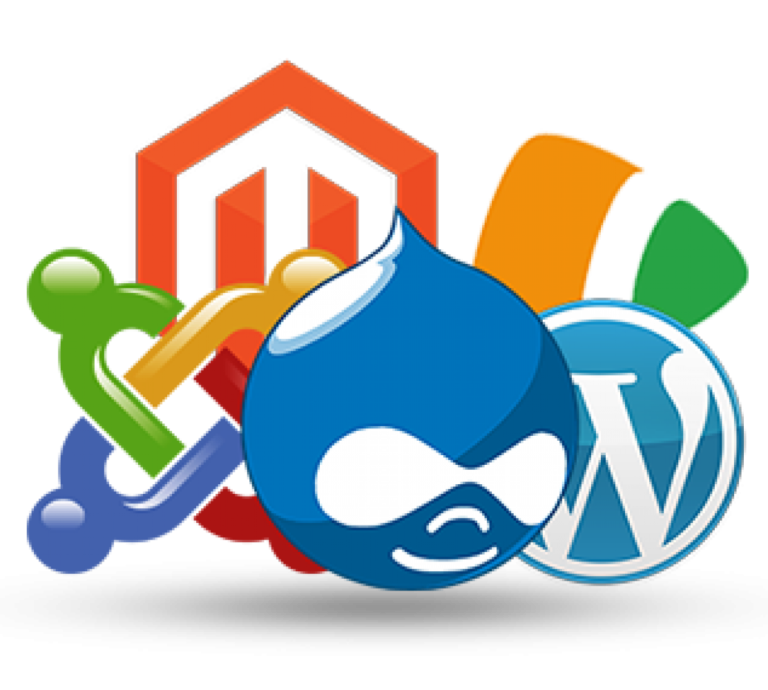The Best CMS Platforms for Creating a Website in 2024

Choosing the right content management system for your website.
Creating a website has never been easier, thanks to the myriad of Content Management Systems (CMS) available today. Whether you’re a novice blogger, a small business owner, or a large corporation, there’s a CMS out there tailored to your needs. In this blog post, we’ll explore some of the best CMS platforms in 2024, highlighting their key features, benefits, and ideal use cases.
1. WordPress
Overview:
WordPress is the most popular CMS platform, powering over 40% of all websites on the internet. It’s known for its flexibility, extensive plugin ecosystem, and ease of use.
Key Features:
- User-Friendly Interface: Intuitive dashboard for easy content management.
- Extensive Plugin Library: Thousands of plugins available to extend functionality.
- Themes: A vast collection of free and premium themes for customization.
- SEO-Friendly: Built-in SEO tools and plugins like Yoast SEO.
- Community Support: Large community with numerous tutorials, forums, and documentation.
Ideal For:
- Bloggers
- Small to medium-sized businesses
- E-commerce stores (with WooCommerce)
2. Joomla
Overview:
Joomla is a powerful and flexible CMS that is particularly well-suited for more complex websites and applications. It offers a balance between simplicity and functionality.
Key Features:
- Flexibility: Suitable for a wide range of websites, from simple blogs to complex portals.
- User Management: Advanced user management and access control levels.
- Multilingual Support: Built-in multilingual support out of the box.
- Extensions: Over 8,000 extensions available for added functionality.
- SEO Tools: Built-in SEO capabilities.
Ideal For:
- Corporate websites
- Online communities
- E-commerce sites
3. Drupal
Overview:
Drupal is known for its robustness and scalability. It’s a favorite among developers for creating complex and highly customized websites.
Key Features:
- High Customizability: Extensive API support and customization options.
- Security: Strong security features and regular updates.
- Scalability: Can handle large amounts of data and high traffic.
- Content Types: Flexible content creation and management.
- Multisite Capability: Manage multiple sites from a single installation.
Ideal For:
- Large enterprises
- Government websites
- Educational institutions
4. Squarespace
Overview:
Squarespace is an all-in-one website building and hosting service. It’s known for its beautiful templates and ease of use, making it a great choice for creatives.
Key Features:
- Design: Award-winning, mobile-optimized templates.
- Ease of Use: Drag-and-drop builder with no coding required.
- E-commerce: Built-in e-commerce tools for online stores.
- Hosting: Includes reliable and secure hosting.
- Support: 24/7 customer support.
Ideal For:
- Creative professionals (artists, photographers, designers)
- Small businesses
- Personal websites
5. Wix
Overview:
Wix is a cloud-based website builder that offers an intuitive drag-and-drop interface. It’s ideal for users who want to create a website quickly and with minimal technical knowledge.
Key Features:
- Drag-and-Drop Builder: Easy-to-use interface for building websites.
- Templates: Hundreds of customizable templates.
- App Market: Wide range of apps to add functionality.
- SEO Tools: Built-in SEO features.
- Hosting: Includes hosting and domain registration.
Ideal For:
- Small businesses
- Personal projects
- E-commerce stores
6. Magento (Adobe Commerce)
Overview:
Magento, now known as Adobe Commerce, is a powerful e-commerce platform used by large retailers and brands. It’s highly customizable and scalable.
Key Features:
- Customizability: Extensive customization options with a modular architecture.
- Scalability: Can handle large catalogs and high traffic.
- E-commerce Focused: Advanced e-commerce features and tools.
- Integration: Integrates well with third-party services.
- SEO and Marketing: Built-in SEO and marketing tools.
Ideal For:
- Large e-commerce stores
- Businesses looking for highly customized e-commerce solutions
7. Shopify
Overview:
Shopify is a leading e-commerce platform designed to help businesses create online stores quickly and efficiently. It’s known for its ease of use and robust e-commerce features.
Key Features:
- Ease of Use: Simple setup and management.
- E-commerce Tools: Comprehensive suite of e-commerce tools.
- Payment Processing: Integrated payment gateway and support for multiple payment methods.
- Templates: Professionally designed themes.
- App Store: Extensive app store for added functionality.
Ideal For:
- Small to medium-sized e-commerce businesses
- Entrepreneurs
8. Ghost
Overview:
Ghost is a CMS platform specifically designed for bloggers and publishers. It’s lightweight, fast, and focused on content creation.
Key Features:
- Speed: Optimized for performance and speed.
- Markdown Support: Write content using Markdown.
- SEO and Social Sharing: Built-in SEO features and social sharing.
- Themes: Minimalistic and responsive themes.
- Membership and Subscriptions: Built-in support for memberships and subscriptions.
Ideal For:
- Bloggers
- Online publications
9. TYPO3
Overview:
TYPO3 is an enterprise-level CMS known for its flexibility and scalability. It’s ideal for large websites that require complex configurations and integrations.
Key Features:
- Flexibility: Highly customizable with a wide range of extensions.
- Multisite Management: Manage multiple websites from a single installation.
- User Permissions: Advanced user permissions and access control.
- Scalability: Can handle large and complex websites.
- Localization: Strong support for multiple languages.
Ideal For:
- Large enterprises
- Government and public sector websites
10. HubSpot CMS Hub
Overview:
HubSpot CMS Hub is a cloud-based CMS integrated with HubSpot’s CRM tools. It’s designed to help businesses create, manage, and optimize their websites.
Key Features:
- Integration with CRM: Seamless integration with HubSpot’s CRM and marketing tools.
- Drag-and-Drop Editor: User-friendly page editor.
- Personalization: Personalize content for different visitors.
- SEO Recommendations: Built-in SEO recommendations.
- Security: SSL, firewall, and dedicated security team.
Ideal For:
- Marketing-focused businesses
- Companies using HubSpot CRM
Conclusion
Choosing the right CMS platform depends on your specific needs, technical expertise, and the type of website you want to create. WordPress remains a versatile choice for many, while platforms like Joomla and Drupal offer more flexibility for complex projects. For e-commerce, Shopify and Magento provide robust solutions. Squarespace and Wix are excellent for those who prioritize design and ease of use. Evaluate your requirements and choose the CMS that best aligns with your goals to ensure a successful online presence.




